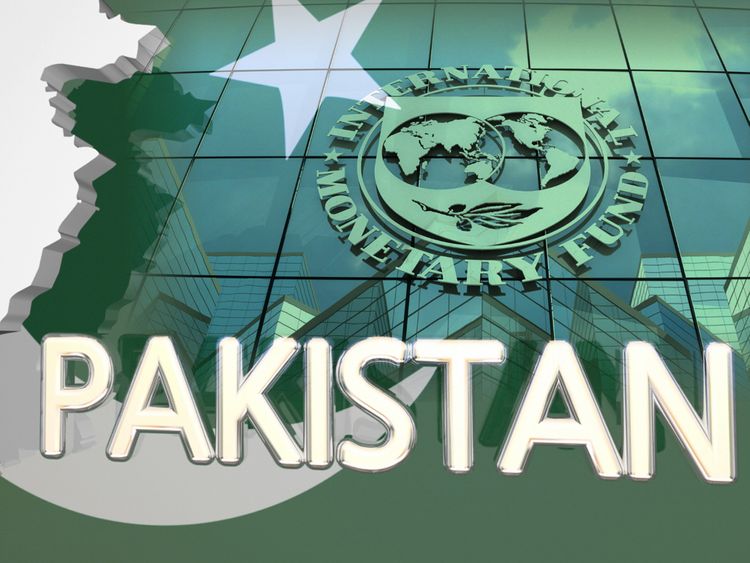‘The next step with Pakistan’ to assurances of financial assistance from bilateral & other sources for release of a bailout tranche: IMF
IMF spokesperson says Pakistan’s economy faces multiple challenges including slowing growth, high inflation & large financing needs
WASHINGTON/ISLAMABAD ( Web News )
The International Monetary Fund (IMF) on Friday tied “the next step with Pakistan” to assurances of financial assistance from bilateral and other sources for the release of a bailout tranche.
“Timely financial assistance from external partners will be critical to support the authorities’ policy efforts and ensure the successful completion of the review [with Pakistan],” said Julie Kozack, the IMF’s Director of Strategic Communications in a press briefing.
Pakistan and the IMF have been negotiating since early February on an agreement that would release $1.1 billion to the cash-strapped, nuclear-armed country of 220 million people.
The funds are part of a $6.5 billion bailout package the IMF approved in 2019 — vital to Pakistan to avert defaulting on external payment obligations.
The deal will also unlock other bilateral and multilateral financing avenues for Pakistan to shore up its foreign exchange reserves, which have fallen to four weeks’ worth of import cover.
The IMF wants Pakistan to get the assurance of up to $7 billion to fund this fiscal year’s balance of payments gap. Finance Minister Senator Mohammad Ishaq Dar has been saying it should be around $5 billion.
“Ensuring that there is sufficient financing to support the authorities is the paramount priority. A Staff Level Agreement (SLA) will follow once the few remaining points are closed,” she said adding financing assurances were a standard feature of all IMF programs.
“We do need to ensure that we have those financing assurances in place in order for us to be able to take the next step with Pakistan,” she added.
Kozack, when asked about the status of talks with Pakistan, said that discussions were ongoing between IMF staff and the Pakistani authorities toward an SLA on policies to complete the ninth review of Pakistan’s extended Fund Facility (EFF).
“The authorities are committed to implementing the necessary reforms. They’ve started to implement decisive actions to stabilize the economy and restore confidence. While providing space to accommodate the needs related to the floods, including through an increase in social assistance through the Benazir Income Support Program, which is aimed at the most vulnerable,” she said.
The IMF spokesperson also said that Pakistan’s economy faces multiple challenges including slowing growth, high inflation and large financing needs. “And of course, this is all coming on the back of devastating floods,” she said.
Meanwhile a long-awaited loan agreement between Pakistan and the International Monetary Fund (IMF) will be signed once a few remaining points, including a proposed fuel pricing scheme, are settled, an IMF official confirmed on Friday.
The latest issue is a plan, announced by Prime Minister Mian Muhammad Shehbaz Sharif last week, to charge affluent consumers more for fuel, with the money raised used to subsidise prices for the poor, who have been hit hard by inflation, which in February was at its highest in 50 years.
The scheme is planning a difference of around 100 Pakistani rupees (35 US cents) a litre between the prices to be paid by the rich and poor, according to the petroleum ministry.
Petroleum Minister Musadik Malik told UK based news agency on Thursday that his ministry had been given six weeks to work out the pricing plan. It would be not a subsidy but a relief programme aimed at helping the poor, he said.
But the IMF’s resident representative in Pakistan, Esther Perez Ruiz, said the government had not consulted the fund about the fuel pricing scheme.
Ruiz, in a message to UK based news agency, confirmed a media report that a staff-level agreement would be signed once a few remaining points, including the fuel scheme, were settled.
The petroleum and finance ministries did not immediately respond to a request for comment.

